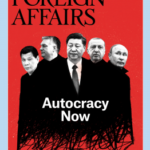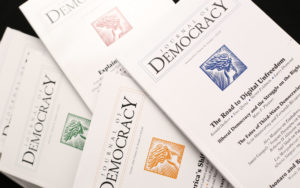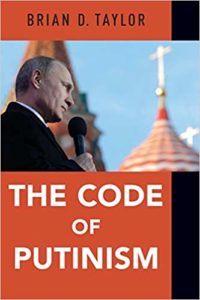 Russia’s Vladimir Putin and China’s Xi Jinping have established themselves as the world’s most powerful authoritarian leaders in decades. Now it looks like they want to hang on to those roles indefinitely,
Russia’s Vladimir Putin and China’s Xi Jinping have established themselves as the world’s most powerful authoritarian leaders in decades. Now it looks like they want to hang on to those roles indefinitely,
Putin’s sudden announcement this week of constitutional changes that could allow him to extend control way beyond the end of his term in 2024 echoes Xi’s move in 2018 to eliminate constitutional term limits on the head of state. That could give them many more years at the helm of two major powers that are frequently at odds with Washington and the West over issues ranging from economic espionage and foreign policy to democracy and human rights. Both moves reflect their forceful personalities and determination to restore their countries to their former glory after years of perceived humiliation by the West. They also mesh with a trend of strong-man rulers taking power from Hungary and Brazil to the Philippines.
 Putin and Xi reflect the tendency of authoritarian leaders to hang onto power for as long as possible and to “die with their boots on,” said David Zweig, professor emeritus of social science at the Hong Kong University of Science and Technology.
Putin and Xi reflect the tendency of authoritarian leaders to hang onto power for as long as possible and to “die with their boots on,” said David Zweig, professor emeritus of social science at the Hong Kong University of Science and Technology.
“Very few authoritarian leaders give up power, always convinced that only they can save the country, which also justifies and makes their hunger for power morally correct,” he added.
Brian Taylor, a political science professor at Syracuse University’s Maxwell School of Citizenship and Public Affairs and the author of “The Code of Putinism,” said Putin’s motive was to secure himself a powerful role post-2024 and constrain the powers of his successor, the Post adds.
 “Since Putin cannot remain as president after 2024 under the current rules, he needs to change the rules. This will potentially allow him to remain the dominant political actor even if he leaves the presidency,” he said. “The way he is going about constitutional reform now seems, at least in part, designed to give everything the veneer of popular support and democratic legitimacy.”
“Since Putin cannot remain as president after 2024 under the current rules, he needs to change the rules. This will potentially allow him to remain the dominant political actor even if he leaves the presidency,” he said. “The way he is going about constitutional reform now seems, at least in part, designed to give everything the veneer of popular support and democratic legitimacy.”
One check on Putin was the worry of backlash on the streets, Taylor said. “If he simply tried to remove all limits and declare himself president for life, I think he would have faced some determined popular mobilization, although it’s hard to know how large or widespread this might have been,” he added.
Putin will have an opportunity to adjust plans for the succession depending on how events play out over the months and years to come, argue Jeffrey Mankoff and Cyrus Newlin of the Russia and Eurasia Program at the Center for Strategic and International Studies (CSIS) in Washington, D.C. Without naming a successor and with the effects of the planned constitutional changes still to be seen, there is much uncertainty between now and 2024. At the same time, Putin is gambling that he can manage the powerful forces of change.
The current contest between democracy and its rivals might turn out to resemble that of the last two decades of the Cold War, which the late Pierre Hassner characterized as “competitive decadence”—that is, a race in which each side’s chief concern is to outlast the other by more adeptly managing its own internal tensions and weaknesses, outgoing co-editor Marc Plattner writes for The Journal of Democracy.
“Political competition between different systems of governance in the world is nothing new,” said the European Union’s ambassador to China, Nicolas Chapui. “I feel that we need to feel confident on our principles, our values, our governance system,” he told AP. RTWT







